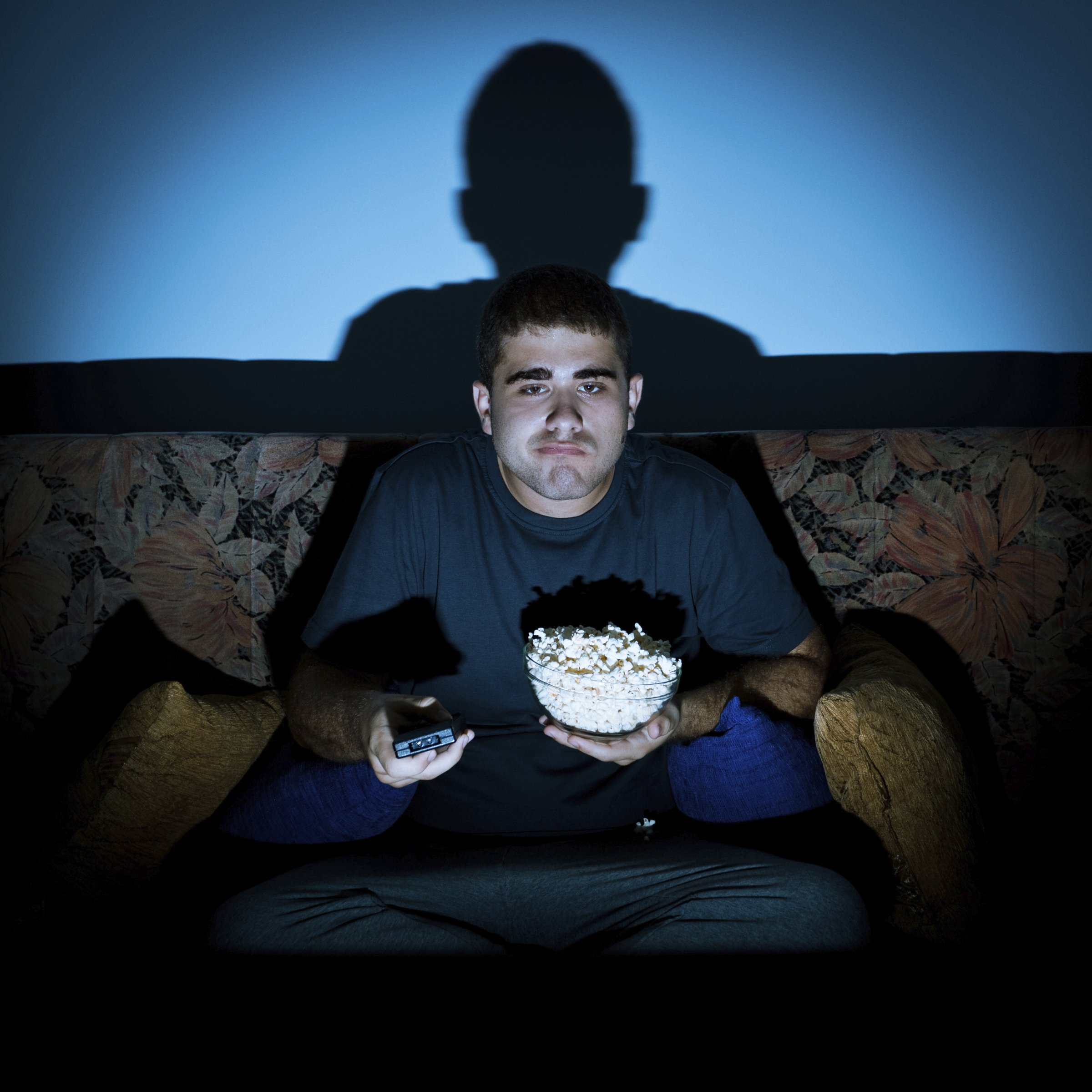
Need another reason to kick back with a jaw-dropping episode of Orange Is the New Black? Didn’t think so—but here’s one anyway. A new study suggests there may be benefits for women who choose riveting TV programs over snoozers: We seem to eat less during the nail-biters.
That’s the conclusion of a group of researchers at Sweden’s Uppsala University, who studied 18 women while they snacked and watched different types of TV programming: an “engaging” episode of a popular Swedish comedy show and a “boring” televised art lecture. As a control, the researchers also monitored grazing during another “non-engaging” activity: reading a text on insects living in Sweden (seriously, we couldn’t make that last part up).
The results showed that boring content increased snacking by a surprisingly weighty margin. While watching boring TV, women consumed 52% more food than during the engaging comedy. This trend held up across different media, too: Subjects ate 35% less while watching engaging TV than while reading about insects. (Work On Your trouble spots during commercial breaks with this couch potato workout plan.)
The study authors conclude that it’s the level of excitement in our TV shows that may determine the amount we chow—not the act of watching (or reading) itself.
“At very low levels of engagement, you kind of eat to engage yourself because you’re bored,” says Aner Tal, a research associate at Cornell University’s Food and Brand Lab, an organization devoted to the study of how and why we eat the way we do. “It might also have to do with the pacing,” he suggests. A rapid-fire story, for example, could speed your rate of eating.
Of course, whether it’s a sleepy Sunday Antiques Roadshow marathon or an edge-of-your-seat Game of Thrones binge, watching TV is still a setup for overdoing it on the munchies. Your healthiest bet is to snack smarter while couch-bound. “Use pre-portioned snacks as opposed to endless bowls,” advises Tal. That means keeping the source of food out of sight, too. “If you know you have a tendency to overeat while watching TV,” he adds, “just snack on something that’s better for you. Have veggies as a snack instead of chips.” And maybe a side of excitement or action, too—anything but art lectures and insects.
MORE: 15 Terrible Snacks For Weight Loss
This article was written by Caroline Praderio and originally appeared on Prevention.com.
More Must-Reads from TIME
- Why Trump’s Message Worked on Latino Men
- What Trump’s Win Could Mean for Housing
- The 100 Must-Read Books of 2024
- Sleep Doctors Share the 1 Tip That’s Changed Their Lives
- Column: Let’s Bring Back Romance
- What It’s Like to Have Long COVID As a Kid
- FX’s Say Nothing Is the Must-Watch Political Thriller of 2024
- Merle Bombardieri Is Helping People Make the Baby Decision
Contact us at letters@time.com